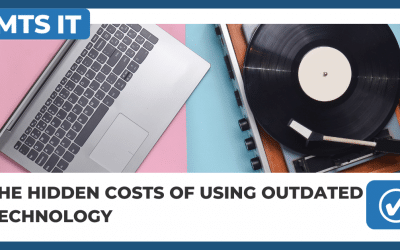We’re not here to give anyone relationship advice. But when it comes to your IT help desk, we’ve seen lots of businesses outgrow their outsourced IT support. If you’re frustrated with your IT help desk, it might be time to consider a breakup.
There is no one reason why an IT help desk and a customer can have a falling out. If your support desk is a small shop they might know you well, but you can’t always get service quickly. Similarly, if your help desk is a large call centre it might be impossible to get personalized service.
If you’re looking for a personalized, responsive help desk, here are 5 signs that indicate your help desk provider is not responsive to your needs.
You only have one level of support
No matter how experienced your support team is, there will always be an issue that needs to be transferred to a higher level of support. Tiers or levels of support make it possible to serve a business’ needs. A multi-tiered support system is organized around a three-tiered support team rather than one general support group.
- Tier 1 troubleshoots your issues, takes information, and tries to assess what you are trying to do.
- Tier 2 support investigates issues by confirming the problem and looking for known solutions.
- Tier 3 support often involves an engineer.
- The fourth level of escalation would involve the hardware or software vendor involved.
In our experience, very few issues demand escalation. However, when escalation is required, you need a partner that can help you through complicated issues.
Your help desk hours don’t match your business hours
Very few companies need continuous help desk coverage. However, not having access to after-hours support can cost your business in the event of an incident occurring late in the day or overnight.
You need a partner that you can call for emergency support. In addition, a help desk needs to be able to support you in the event of a service outage or unplanned downtime.
Support ticket resolution time has increased
Every IT problem must be tracked with a support ticket. If it takes you longer and longer to get your issues resolved, you may be outgrowing your vendor. To analyze your situation, review your outstanding trouble ticket volume. If there are more tickets or longer times to close tickets, you have a problem.
In a healthy relationship, your open ticket volume should be shrinking as your partner develops processes to meet your needs. If it’s growing, your IT services company can’t keep up with your business growth.
You can’t remember your last cybersecurity checkup
Small and medium-sized businesses are prime targets for cybercrime. Your IT support provider should be aggressively protecting your business from cyber threats. They should also be working with you on disaster recovery plans if the worst should happen.
Your help desk should not just be available to respond to cyberattacks but should also be able to provide a step-by-step plan with a multi-layered approach to cybersecurity. Ongoing or regular support can include:
- Monitoring anti-virus and malware updates
- Running checks against email filters and firewall
- Password security testing
- Penetration testing
IT provider lacks a strategic approach
Your business technology policies, processes, and infrastructure should match your business model. Technology isn’t something you can put in place and then only worry about it when things aren’t working. The help desk can communicate issues and analyses so continuous improvements can be made to help your business. Only fixing issues when they happen and not looking at the longer-term fixes will only hurt your business over time.
For more information on choosing a help desk partner, talk to the experts at MTS IT.



